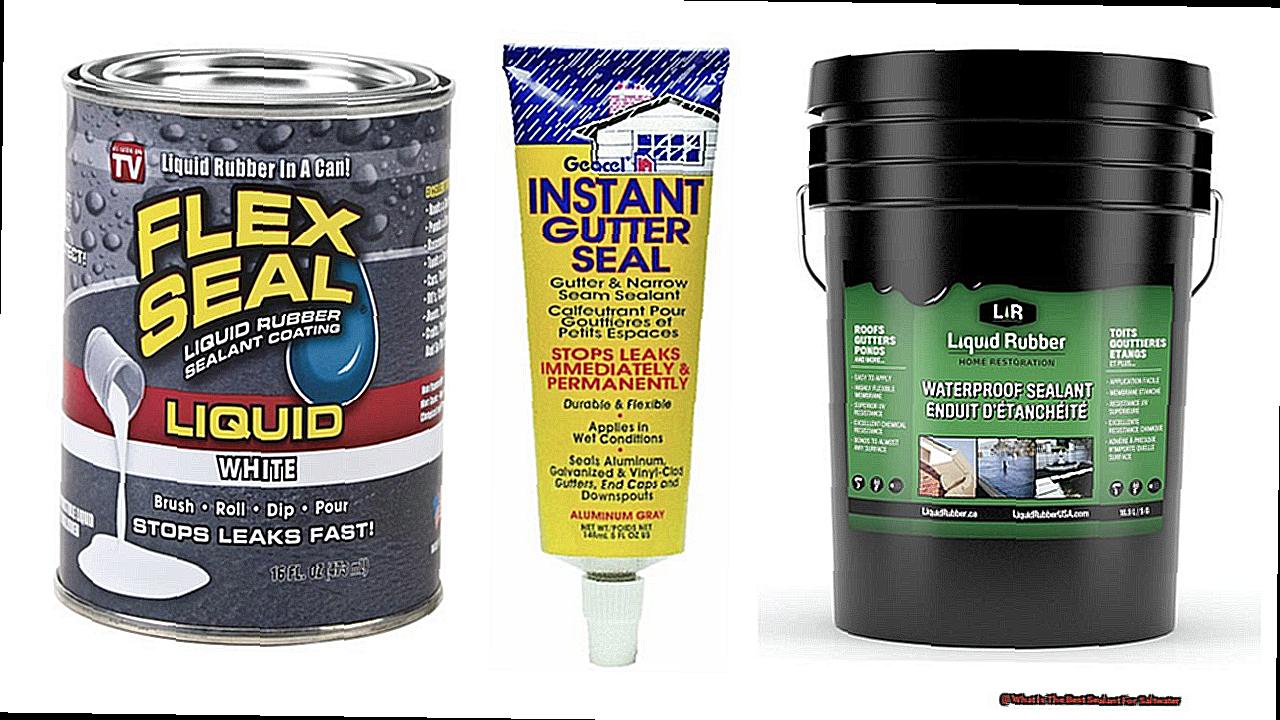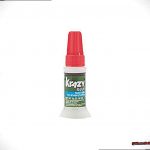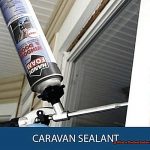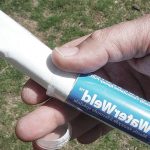Picture this: the salty sea breeze caressing your face, the exhilarating crash of waves, and the feeling of absolute freedom that only comes from being out on the open ocean. It’s a paradise for sailors, fishermen, and beachgoers alike. But let’s face it – saltwater can be a real pain when it comes to preserving your equipment. That’s why finding the perfect sealant for saltwater is an absolute must.
Whether you’re a seasoned boat enthusiast, an avid beachcomber, or a marine engineer with a passion for protecting your gear, you know how crucial it is to shield your valuables from the corrosive nature of saltwater. With so many sealants flooding the market, all claiming to be “the one,” how do you pick the right one that will truly safeguard your precious belongings?
In this blog post, we’re diving headfirst into the world of sealants. We’ll explore different types of sealants available, weigh their pros and cons, and provide expert advice that will equip you with the knowledge needed to make an informed decision. So grab your trusty nautical chart and get ready to embark on a voyage of discovery as we uncover the best sealant for all your saltwater adventures.
Marine-Grade Silicone Sealant: Advantages and Disadvantages
Contents
- 1 Marine-Grade Silicone Sealant: Advantages and Disadvantages
- 2 Polyurethane Sealant: Advantages and Disadvantages
- 3 Epoxy-Based Sealants: Advantages and Disadvantages
- 4 Butyl Rubber Sealant: Advantages and Disadvantages
- 5 Factors to Consider When Choosing a Sealant for Saltwater Applications
- 6 Professional Advice for Selecting the Right Sealant
- 7 Common Mistakes to Avoid When Choosing a Sealant for Saltwater Applications
- 8 Conclusion
When it comes to sealing applications in saltwater environments, selecting the right sealant is crucial. The corrosive nature of saltwater makes it essential to choose a sealant that can withstand its harsh conditions. Among the various options available, marine-grade silicone sealant stands out as a reliable and effective choice. In this article, we will explore the advantages and disadvantages of using marine-grade silicone sealant in saltwater environments.
Advantages:
Resistance to Saltwater Corrosion:
Marine-grade silicone sealant excels at resisting saltwater corrosion. Its specialized formulation allows it to withstand the corrosive effects of saltwater, providing long-lasting protection against water damage.
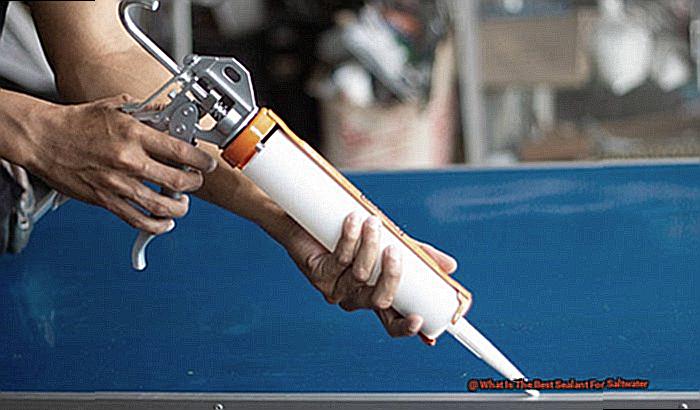
Strong Adhesive Properties:
This sealant forms a robust bond with various surfaces such as fiberglass, metal, glass, and plastic. Its strong adhesion ensures that the seal remains secure and watertight even in high-stress areas subject to movement or vibration.
Flexibility:
The flexibility of marine-grade silicone sealant allows it to adapt to the expansion and contraction of materials caused by temperature fluctuations without cracking or losing its sealing properties. This is crucial in saltwater environments where boats and structures experience dynamic conditions due to changing water levels and tidal forces.
UV Resistance:
Marine-grade silicone sealant offers excellent UV resistance, making it highly suitable for applications exposed to direct sunlight. Unlike other sealants that may yellow, crack, or become brittle when exposed to prolonged sunlight and ultraviolet radiation, marine-grade silicone sealant maintains its integrity even in harsh marine conditions.
Disadvantages:
Higher Cost:
One potential drawback of marine-grade silicone sealant is its relatively higher cost compared to other sealants. However, considering the potential costs of water damage and repairs caused by a failed sealant, the investment in marine-grade silicone sealant is justified.
Longer Curing Time:
Marine-grade silicone sealant typically requires a longer curing time compared to other types of sealants. This can be a disadvantage in situations where quick repairs or installations are required, as the curing process may delay project completion. However, allowing sufficient time for the sealant to fully cure is crucial for optimal performance.
Polyurethane Sealant: Advantages and Disadvantages
Polyurethane sealant is a popular choice for sealing joints, cracks, and gaps in saltwater environments due to its numerous advantages. Firstly, it boasts excellent water resistance, forming a tight and durable bond that prevents water from seeping through. This makes it ideal for use in marine environments such as boats, docks, and piers. Its ability to withstand the corrosive effects of saltwater is a significant advantage.
In addition, polyurethane sealant exhibits outstanding adhesion properties, adhering well to surfaces commonly found in saltwater environments such as metals, concrete, wood, and plastics. Its versatility allows for a wide range of applications without compromising its effectiveness. Whether it’s sealing seams on a boat or repairing a leaking pipe in a saltwater aquarium, polyurethane sealant provides a reliable solution.
Moreover, polyurethane sealant maintains its flexibility even when exposed to saltwater and harsh environmental conditions. This elasticity enables it to expand and contract with the movement of materials, preventing cracks or leaks from forming over time. In saltwater environments where structures are constantly subjected to waves and tides, this flexibility is crucial.
Furthermore, polyurethane sealant offers good UV resistance. It can withstand prolonged exposure to sunlight without degrading or losing its sealing properties. In saltwater environments where boats, docks, and other structures are constantly exposed to the sun’s harmful rays, this UV resistance ensures long-lasting protection.
Despite its advantages, there are some disadvantages to using polyurethane sealant in saltwater environments. One notable drawback is its longer curing time. It may take several hours or even days to fully cure and develop its maximum strength. This can be inconvenient when immediate sealing or repairs are required.
Moreover, applying polyurethane sealant can be more complex compared to other options. Proper surface preparation, including cleaning and priming, is necessary to ensure optimal adhesion. The application process may also require specialized tools or equipment.
Lastly, polyurethane sealant can be more expensive than other sealant options. However, considering its superior performance and durability in saltwater environments, the investment can be worthwhile in the long run.
Epoxy-Based Sealants: Advantages and Disadvantages
When it comes to protecting structures in saltwater environments, epoxy-based sealants emerge as the champions. These sealants offer a range of advantages that make them the go-to choice for projects facing the relentless forces of saltwater. However, like any superhero, even epoxy-based sealants have their weaknesses. Let’s dive into the advantages and disadvantages of using epoxy-based sealants in saltwater environments.
Advantages:
Exceptional Bonding Strength:
Epoxy resins possess a unique chemical structure that enables them to form robust bonds with various materials like metals, plastics, and concrete. This bonding strength ensures long-lasting durability in saltwater environments that are prone to corrosion and degradation.
Resistance to Water and Chemicals:
Saltwater is highly corrosive due to its high salt and mineral concentration. Epoxy-based sealants are formulated specifically to resist the effects of water and chemicals, making them ideal for use in saltwater environments. This resistance maintains the integrity of the sealed area, preventing water intrusion or chemical attacks.
Flexibility and Durability:
Epoxy-based sealants exhibit good flexibility and durability, making them capable of withstanding temperature fluctuations, vibrations, and movements without cracking or losing effectiveness. This flexibility is vital in saltwater applications where structures or components may experience constant movement or stress.
Disadvantages:
Higher Cost:
One of the main drawbacks of epoxy-based sealants is their relatively higher cost compared to other types of sealants. The production process requires specific equipment and expertise, making epoxy resins expensive raw materials. This cost factor may limit accessibility for budget-conscious projects or those requiring a large volume of sealant.
Limited Flexibility Once Cured:
While epoxy-based sealants offer good flexibility when applied, once cured, they become rigid and less able to accommodate significant movement or expansion. In applications where constant movement or thermal expansion and contraction are expected, the cured epoxy may crack or fail under excessive stress.
Butyl Rubber Sealant: Advantages and Disadvantages
Choosing the right sealant for saltwater environments is crucial, and butyl rubber sealant is a popular option known for its exceptional waterproofing properties. In this article, we will explore the advantages and disadvantages of using butyl rubber sealant in saltwater environments.
Advantages:
Excellent Waterproofing Properties:
- Creates a strong, impermeable barrier to prevent water seepage.
- Essential in saltwater environments where moisture exposure is constant.
Versatility:
- Offers excellent adhesion to various surfaces, including metal, glass, concrete, and plastics.
- Suitable for diverse sealing applications in saltwater environments.
Flexibility:
- Withstands movement and vibrations without cracking or losing sealing properties.
- Vital in marine applications exposed to waves and currents.
Durability:
- Withstands extreme temperatures, UV exposure, and harsh weather conditions.
- Maintains effectiveness over time.
Disadvantages:
Higher Cost:
- Relatively more expensive than other sealants.
- May be less accessible for those on a tight budget.
Slow Curing Time:
- Takes several days to fully cure and reach maximum bonding strength.
- Inconvenient for quick repair or sealing jobs.
Limited Chemical Resistance:
- May have limited resistance to certain chemicals and solvents.
- Compatibility with potential contaminants should be considered.
Surface Preparation:
- Proper surface preparation is essential for optimal adhesion.
- Surfaces must be clean, dry, and free from contaminants or loose materials.
Factors to Consider When Choosing a Sealant for Saltwater Applications
The allure of the open sea beckons, but before embarking on your saltwater adventure, there’s one crucial consideration: choosing the right sealant. This article explores the factors to keep in mind when selecting a sealant that can withstand the harsh conditions of saltwater applications.
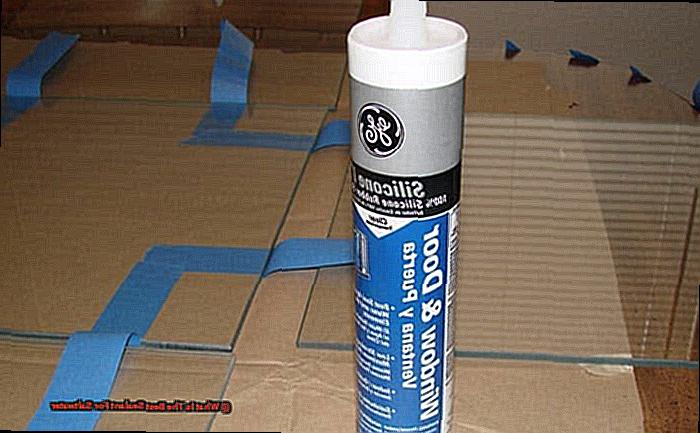
Corrosion Resistance:
Saltwater silently corrodes metals and materials. Prioritize sealants with excellent corrosion resistance to protect your vessel against saltwater’s relentless assault.
Waterproofing Properties:
Saltwater finds its way into even the tiniest crevices. Choose a sealant with exceptional waterproofing properties to keep your ship watertight. Look for one that creates a robust barrier against saltwater intrusion.
Adhesion Strength:
Rough seas demand a sealant that can hold its ground. Opt for a sealant with high adhesion strength to create a reliable seal that won’t crack or break under pressure, ensuring your vessel stays secure even in crashing waves.
UV Resistance:
The scorching sun is as damaging as Poseidon’s wrath. Select a sealant with excellent UV resistance to prevent sun-induced degradation. This maintains the longevity and effectiveness of your sealant against saltwater and sunlight.
Flexibility:
Life at sea means constant movement and vibrations. Choose a sealant that offers good flexibility to adapt to ever-changing conditions without losing its sealing properties, keeping your ship safe.
Chemical Resistance:
Saltwater carries chemicals and pollutants that wreak havoc on materials. Opt for a sealant with excellent chemical resistance to protect against the corrosive effects of saltwater and harmful substances it may carry.
Ease of Application:
Time is precious before setting sail. Choose a sealant that is easy to apply and requires minimal preparation. This saves time and effort during installation, allowing you to set sail sooner.
Professional Advice for Selecting the Right Sealant
The open sea beckons, promising adventure and excitement. But before you set sail or dive into a saltwater environment, it’s crucial to choose the right sealant to protect against the corrosive effects of the ocean. After all, you don’t want to be left high and dry when your sealant fails you.
To navigate the vast selection of sealants, consider these key factors:
- Material Compatibility: Different materials have varying degrees of resistance to saltwater corrosion. Silicone sealants are often recommended for saltwater applications due to their outstanding resistance and durability.
- UV Resistance: Saltwater environments are exposed to intense sunlight, which can degrade and discolor sealants. Look for UV-resistant properties to ensure your sealant remains strong and vibrant under the scorching sun.
- Curing Time and Application Method: Consider the project’s needs in terms of convenience and ease of use. Some sealants may require longer curing times or specialized application techniques that may not be suitable for your project.
- Seek Professional Advice: Consulting with experts or reading reviews can provide valuable insights and recommendations based on real-world experiences.
Common Mistakes to Avoid When Choosing a Sealant for Saltwater Applications
When it comes to choosing a sealant for saltwater applications, one must tread carefully to avoid common mistakes that can lead to premature failure, damage to materials, and additional expenses. Don’t let these mistakes sink your project before it even sets sail. Here are some essential tips to keep in mind:
- Don’t underestimate the power of specialized sealants: Standard sealants simply won’t cut it in the harsh conditions of saltwater environments. Be sure to choose a sealant specifically designed to resist the corrosive effects of saltwater, ensuring longevity and durability.
- Look beyond initial cost: While it may be tempting to go for a cheaper sealant, remember that quality matters in the long run. Inferior products may require frequent reapplication or maintenance, leading to higher expenses over time. Invest in a high-quality sealant that will stand the test of time.
- Consider the specific requirements of your application: Saltwater applications vary in temperature ranges, pressure levels, and exposure to UV radiation. Take these factors into account when selecting a sealant to ensure optimal performance and longevity.
- Compatibility is key: Different sealants may react with certain materials, causing damage or compromising the effectiveness of the seal. Always review manufacturer recommendations and conduct compatibility tests before applying the sealant.
- Prepare, prepare, prepare: Proper surface preparation is vital for good adhesion and longevity of the sealant. Thoroughly clean and dry the surface, removing any dirt, grease, or contaminants that could interfere with the bonding process.
- Flexibility is your friend: Saltwater environments subject materials and structures to constant movement and stress. Choosing a rigid sealant that cannot accommodate this movement can result in cracking or detachment over time. Opt for a flexible sealant that can withstand these movements, ensuring a watertight seal that lasts.
Conclusion
In conclusion, selecting the ideal sealant for saltwater applications requires careful consideration of multiple factors. Marine-grade silicone sealant is a standout choice, offering unrivaled resistance to saltwater corrosion, formidable adhesive properties, impressive flexibility, and UV resistance. It’s a dependable option for safeguarding your valuable equipment in saltwater environments.
Another popular contender is polyurethane sealant, renowned for its exceptional water resistance, remarkable versatility, flexible nature, and long-lasting durability. With good UV resistance thrown into the mix, it proves itself suitable for a wide range of saltwater applications.
Epoxy-based sealants deserve recognition for their extraordinary bonding strength and unwavering resistance to water and chemicals. However, they come with a higher price tag and tend to be less flexible once fully cured.
Then there’s butyl rubber sealant—celebrated for its outstanding waterproofing capabilities, remarkable versatility in application, impressive flexibility, and long-lasting durability. Keep in mind that it might have a slightly higher cost and require more patience due to its slower curing time compared to other alternatives.
When choosing a sealant for saltwater applications, don’t overlook crucial factors such as corrosion resistance, waterproofing properties, adhesion strength, UV resistance, flexibility, chemical resistance, ease of application, material compatibility, curing time, and application method. Seeking professional advice while avoiding common pitfalls like underestimating specialized sealants or compromising on quality will undoubtedly ensure the success of your project.
Remember: protecting your equipment from the corrosive nature of saltwater is paramount to maintaining its longevity and peak performance in the challenging marine environment.

